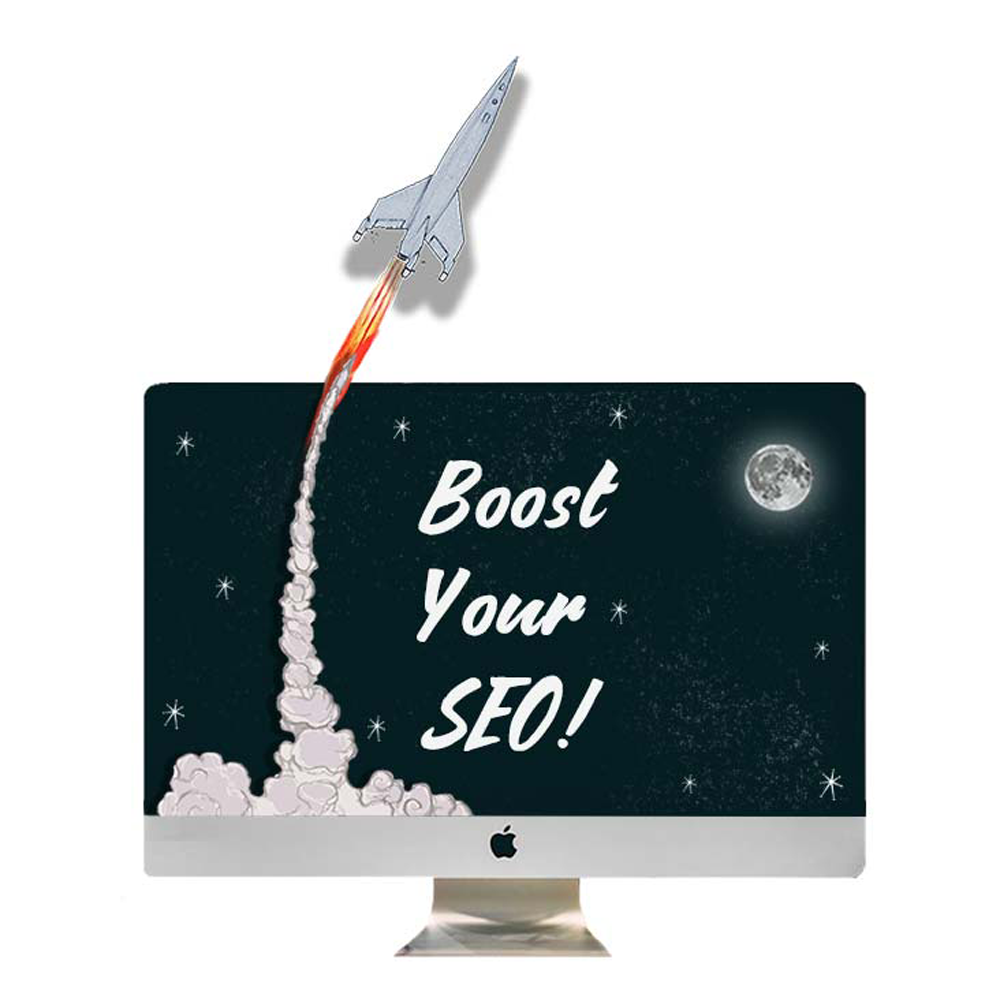What Is SEO?
Even though it sounds simple, SEO isn’t just one single technique. There are many factors that contribute to how a search engine ranks your site. These factors fall into two categories, on-page and off-page SEO. What’s the difference? On-page SEO refers to optimizations you make on the website itself. Changes to a brand’s website include the content, security, headings, site architecture and more. Off-page SEO refers to optimizations outside of the website. Many times, off-page SEO is outside a brand’s direct control, and includes mentions of the brand by other people, brand reviews and links to the website. To improve your website’s search ranking, you need to apply many techniques, write content and influence others regarding your brand. It is no small task.
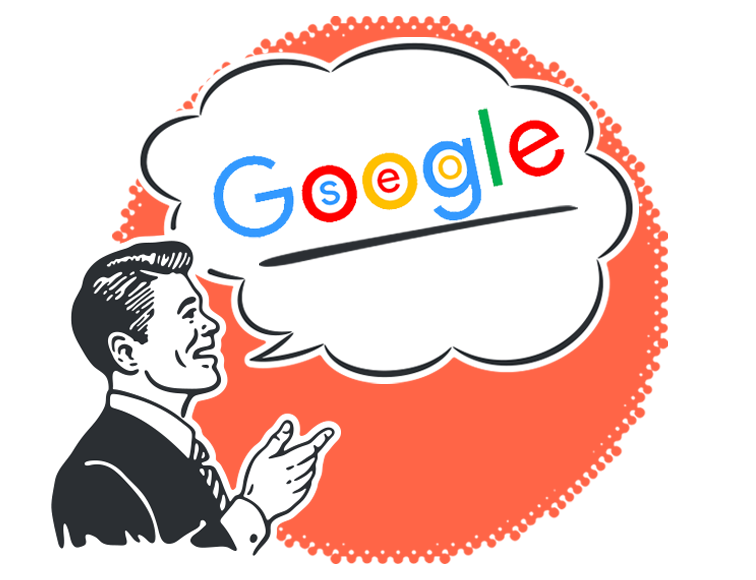
What your website talks about
You probably already have an idea what search terms you want your site to show up for. Does the content on your website provide quality information about those topics? Does it answer questions that people are asking about the type of products and services you provide? If not, providing information and answers on your website is the first place you should start. Search engines reward websites with well-written, original information.
Be Better Than the Rest
(Content Quality)
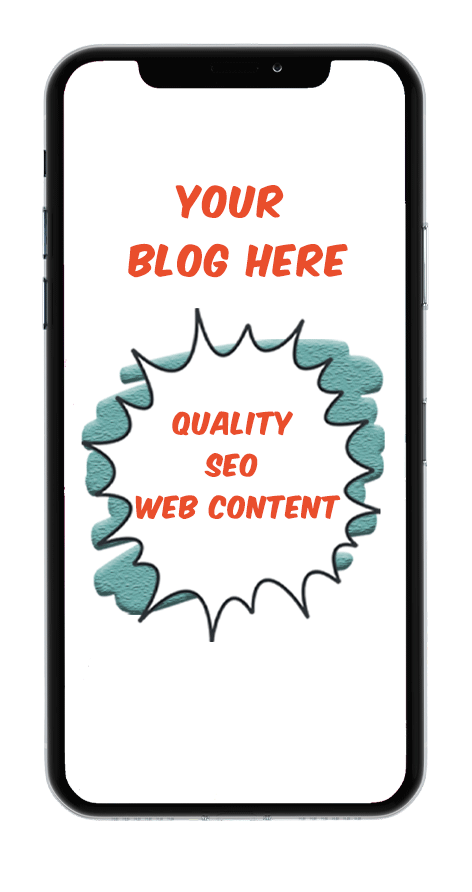
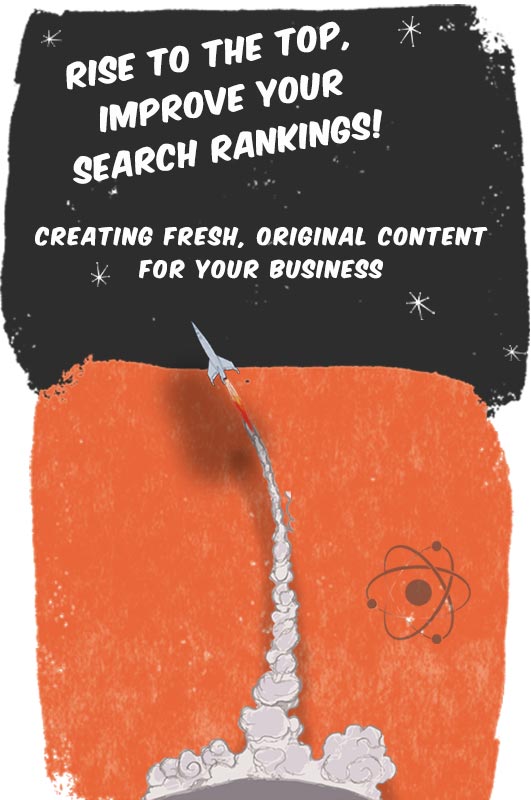
Provide Something They Haven't Read Before
(Original and Fresh)
Since many websites cover similar topics, original, fresh information helps give you an edge. After all, the whole reason people use search engines is to find something new or learn something. So, if you have something new and different to offer people, that’s a valuable asset to have. Sometimes, this means providing new information that is not covered elsewhere on the web. Other times, this means creatively presenting information about a topic in a new way that enables better understanding. Both these approaches are effective and can improve search ranking.
Choose the Right Words
(Include the Search Terms)
Word choice is also important to search engines. The words you use signal which searches your page is relevant to. That’s why it’s important to research and find out what people are searching for. You want to make sure that your original, fresh and high quality content shows up for your target audience as you intend it to. Beyond word choice, how and where the words are used matter too. Keywords have a bigger impact when included in titles, headings and the top of the page.
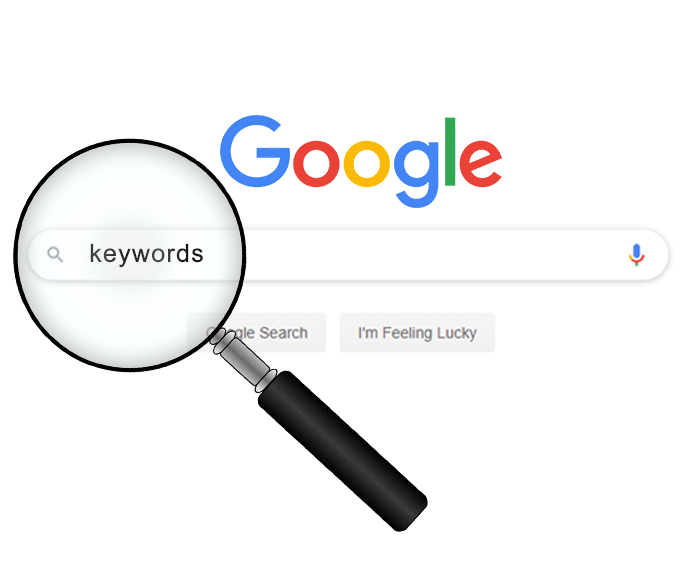
Satisfy Their Curiosity
(In-Depth Content)
The content should be comprehensive and detailed to satisfy the reader. Again, the content should be interesting, engaging and original. Recycling what you’ve seen on the internet won’t work.

How Your Website Is Put Together
The ultimate goal of search engines is to return results that are exactly what the searcher is looking for. It’s obvious that the actual content on a page plays a big part in that, but the underlying architecture of the site plays a role too. The architecture of the site is made up of the structure of the information, how fast it loads, whether it looks good on different sized screens.

Protect Your User's Information (Security)
Security is part of your site’s architecture. A site that has a SSL certificates in place is secure and starts with a https prefix. The SSL certificate means that any data exchanged between the server and the browser is encrypted. Secure transmission of information is especially important for financial information, such as a credit card number to complete a sale. But, it is a good idea to protect any information that the user provides. Not only does it protect the user’s information, but it also helps build trust with potential customers and ranks higher with search engines.
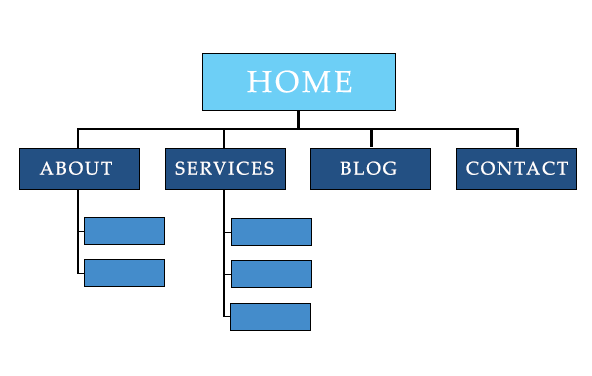
Provide an Map of Your Website (Sitemap)
A website’s sitemap tells search engines about the structure of the website. It tells the search engine where pages are located relative to one another and what the hierarchy of the pages is. Search engines use sitemaps to “crawl” an entire website. Crawling a site means reading all the pages on a website, so that the pages can be put in the search engines index. And, a search engine’s index is what the search engine uses to find pages to return for any particular search.

Looks Great on All Devices (Responsive)
Nowadays, people use many different types of devices to browse the internet, from large desktop monitors to medium-sized tablets to handheld smart phones. Fortunately, web designers are able to design websites that adjust the layout to fit the device. Websites that are designed to fit any sized display are called responsive and perform better with search engines than non-responsive websites.

Don't Repeat Yourself (No Duplicate Content)
Duplicate content and pages are problematic for search engines. Search engines might react to duplicate content by putting your pages in competition with each other. This intra-site competition between your pages decreases each page’s ability to rank well. If pages have duplicate content, but are not exactly the same, a search engine might decide which page is the most important page. The search engine’s decision may or may not reflect the page that you think is most important and would prefer in the search rankings.

Don't Make 'Em Wait! (Page Speed)
Your customers don’t want to wait. If a page takes too long to load, they’ll be gone before they even visit your website. There are a number of techniques that you can use to improve the load speed of your website. Optimized images, compression, caching, and a fast server are some of the methods you can use to speed up your website.
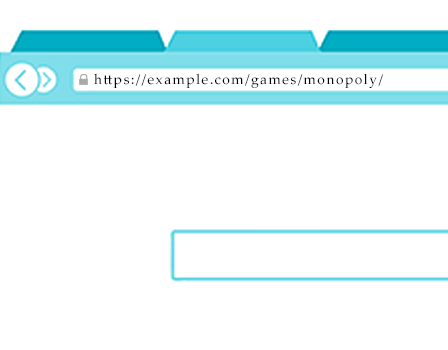
URL
Naming
An URL is the address that tells the browser where a page is located. It is what you see in the address bar on a browser. Most people don’t think too much about the URL, but a good URL contains clues about the site structure. An example of a good URL is: https://example.com/games/monopoly/, while an example of a not-so-good URL is: https://example.com/title/tt0432584/. The good URL contains clues about website structure and which pages are related. It’s just one more way you can help the search engines out with understanding what your website is all about.
The hidden part of your website
All webpages have source code that tells the browser where to place all the components on the page. The source code tells the browser things like where images should be placed and how big they should be. It also tells the browser what style fonts to use, whether to center text, what the buttons should do and much more. I call what is included in this source code, the hidden part of your webpage.
HTML Markup
HTML Markup contains the basics of your hidden webpage. It tells the browser what the headings, images, buttons, links and title of the page are. The headings make up a sort of outline of the page, so having relevant keywords in the headings can help your page show up in the searches you’re targeting. Titles, captions and alt text can be added to images, and not only improve user experience, but also provide search engines with additional context for the page.
Structured Data
HTML Markup is a bit like puzzle pieces. Search engines put together all the clues from headings, images and general text to understand the purpose of the page and the context of the page within the entire website. Structured data is a more like a direct message to search engines. With structured data, you can tell the search engine what type of entity the website represents. You can specify the social media accounts that are associated with the website. You can indicate the logos for the brand and much more. It’s a great tool for clarifying what your website is about.
Linking
Links to other pages, both on and off your website, are very important and serve many purposes. From a user experience standpoint, they improve the website’s usability, as they provide paths to traverse from page to page. But, from an SEO standpoint, they are signals to search engines about the importance of pages. Links from other websites to yours are especially valuable for this reason, but you do not have control over links from other websites. Surprisingly, internal linking is a valuable tool at your disposal too. Internal linking, or links from within your own website, signal to search engines about the relative importance of pages on your own site. In this way, search engines can prioritize pages and boost your most important pages over other pages in your website. One thing that you’ll want to avoid is broken links. Broken links decrease both your website’s usability as well as your search rank.
What others think of your website
You may be wondering if it matters what others think of your website. The answer is YES. The interesting part about this topic is that search engines are able to somehow measure what others think of your website. In SEO-world, search engines use complicated algorithms to measure whether others trust your brand. (Think of an algorithm as a formula which combines many factors and weights them according to importance.) When it comes to measuring trust, these algorithms focus on authority and engagement.
Do you know what you're talking about? (Authority)
Do others consider your site a source of information? Are you an original source of information and new content, or are you repeating ideas and stories you’ve heard elsewhere? Measurements of authority look at where information is coming from, and whether others trust that information. Others indicate their trust by referring to, commenting on and even copying from a source. If people are doing any of these things, you are going to do really well in the search rankings.
Do others interact with you?
(Engagement)
If what you share online is interesting and relevant, people will engage in conversations with you. They will ask to find out more, comment on what they like or don’t like and offer their own experience. It can be a challenge to get conversations going, but asking questions and always responding if you do get responses are a great way to start.
Do others talk about your website?
In the online world, others “talk” about you by linking to your website or by mentioning your brand. A link from another website to yours is called a backlink. Backlinks were the first major “off-page” ranking factor that search engines considered. These were, and still are the most important external signal for search rankings.
Backlinks
Not all links are created equal, so how do search engines determine which ones are the best? Both quantity and quality matter, so the getting many links from the best websites is the goal. When counting backlinks, both the total number of links and the total number of linking domains are taken into account. A domain that has one or more total links to your site is counted as a single linking domain. To determine the quality of the backlinks, search engines look at the authority of the website linking to yours.
Anchor Text
When considering links, it’s not just what’s pointing at your website, but also what’s being said about your website. Anchor text is the linked text (the highlighted text) that links one web page to another. Consider it like this: someone is having a conversation and mentions something you said. They point to you in real life, giving you credit for your expertise on that subject. Pretty cool, right? That’s very different than a salesperson who is paid to promote your products. Search engines have ways to determine the context of how your site is being referred to. They are looking for natural mentions of your brand across many websites. Spammy links and paid links have a negative effect.
Is it Relevant to the Searcher?
On top of everything else that has an impact on search results, search engines also consider the person doing the search. What is the intent of the search? That is, the search engine tries to understand beyond the exact words used in the search query. For example, when a person googles Atlanta Falcons, they may want to get tickets for an upcoming game, read about this year’s draft or find out the score of a game. Search engines may use location, time of search and previous searches to guess at what the user may want to know. Location is one that has a big impact regarding local businesses. Searches that are determined to be local searches take location into consideration. That’s because when it comes to choosing a local business, such as a restaurant, you want it be close to you.
Does your Brand Relate to People?
Special Considerations for Local SEO
Local SEO allows smaller businesses to compete in their own sandbox. Search engines are able to determine if a query has local intent and narrow down the options to the nearby players. If you want to succeed in local SEO, all the above tactics will improve your ranking. But, additional tactics will also benefit your business in ranking well in local searches.
Online Directories and Social Media
Claiming and managing your listings in online directories help local businesses rank better. The name, phone number and address of your business should be consistent everywhere it is mentioned. Not only is this a good practice to improve your local SEO, it also helps people find you wherever they happen to be looking. Some of the biggest online directories and social media listings that you’ll definitely want to include are: Google My Business, Apple Maps, Facebook, Twitter, Yelp, Yellow Pages, Linked In, Instagram, Houzz, Bing Places, Home Advisor, and Thumbtack. There are actually hundreds of online directories, but those should get you started. Depending on your business, some directories may not be relevant, so pick and choose according to what fits your brand.
Reviews
Reviews are also huge brand builders. Chances are, you too, rely on reviews for decisions when you choose a local business. The more positive reviews you have, the stronger your ranking and reputation. Getting reviews, however, depends more on your real-world actions with customers. To get reviews, you have to actively seek them. Sure, it helps to have a system in place to send emails or texts requesting reviews. But, to get lots of reviews, you have to ask for them. Ask your customers for feedback and prove your interest in their feedback by evaluating how you serve them.
Local Content
When it comes to local SEO, think local. Blogging is an extremely effective method to increase your search ranking, but unless you mention local places, events and businesses, you’ll be competing against the big national players. Find a way to incorporate local topics into your content. Mention your city name, or talk about attending a city event. Your brand will gain more recognition this way, and people are more likely to choose a brand they have some familiarity with.
Might Good Marketing is a digital marketing agency located in Flowery Branch, GA and serving the metro-Atlanta area. Curious about improving your business’s SEO and boosting your online presence? Contact us today at 1-866-935-5699 or fill out our form to schedule a free consultation.

